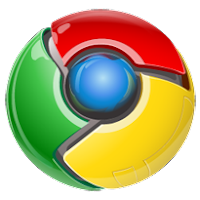
After all, there is a question that probably comes in your minds: 'Why are we thinking to Enterprise Social Software? Is it worthwhile?'Well, the answer is simple: 'Because it's natural!'
To explain this, we have to think at how things have changed in just 10/15 years.
About 10/15 years ago e-mails seemed to have introduced the highest level of communication technology because of the fact that a message is sent real-time compared to post-mail (not necessarily received real-time though).
Today, [audio,video]chat seems to have outdated this type of communication since it is real-time from a receiving/answering point of view: you can send a message to a user that you can even see if he/she's online, and you know that he/she has received your message instantly.
Digital communication was a way that people used to get in touch with other person that they know already. Web 'social rooms' like wiki, forum and blogs allow people to get in touch with people sharing the same interests, ideas, knowledges, hobbies, friends, business needs, etc.
Yesterday communication was web centric, while social networks are putting people in the centre.
Let's think about young graduates: 10/15 years ago, new graduates were entering into their first jobs and finding PC's as to be their most important tool for the day by day activities, and therefore were learning using it from that time because very few people had a PC at home. This was making them to learn the technology at work.
Today's graduates are growth with a PC at home. They are already able to use it, to configure printers, to surf the web, configure a mail client, access mail via web, chat with others, access information through forums and wikis, see blog contents, and even create and share info on these tools for free!
They 'bring' their technology knowledge into the enterprises but they usually finds that companies are backward in technology evolution: many companies still use Windows NT/2000 while Mac OS-X, Linux and Vista are in out there; not always there are intranet with tools to interact with collegues and share processes and knowledge with them; wifi is still not present everywhere; mail tools are basic, there is no shared calendar and contact tools; there is no social networking functionallity.
Today young people is growing with mobile phones with which they can access the web (youtube, skype, messenger, facebook, picasa, etc.) and exchange e-mail, pictures, video, etc. They come into the work environment and find old mobile phones, bought at about 50/100€, that can only be used for making phone calls while they can stay continuously connected with their friends and tech-mates with their 'tech-toys'.
This makes the new hired graduate to think about the obsolescence of the company technology.
Now, think to a work environment where every employee that needs to know who is the expert within the company (or even within the 'certified' partners) for a specific argument for which he/she has to make activities on, can find him/her through a couple of web-clicks on the company intranet, that is a tool that can pull out the 'knowledge' in seconds.
Think to a people centric solution where users can access information instantly through web searches and start sharing info with others easly.
You can join to groups of people that work on a specific problem or item, you can find people that have handled your problems before, or have developed the same documentation that you have to generate in the past, in short, that can help you in your job!
The answer is surely not exhaustive but... Feel free to ask more.




